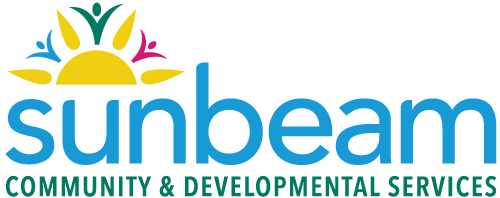Diversity, Inclusion, Equity
Diversity, Inclusion, Equity Statement
Sunbeam Community & Developmental Services is a diverse, inclusive, and equitable workplace where all employees, volunteers and service providers, whatever their gender, race, ethnicity, nationality, age, sexual orientation or gender identity, education or disability, feel valued and respected.
We are committed to a nondiscriminatory approach in providing equal opportunity for employment and advancement in all our departments, programs, and worksites. We respect and value diverse life experiences and heritages and ensure that all voices are valued and heard.
We model diversity, inclusivity and equity for the developmental services sector, and maintain an environment with equitable treatment for all. We explore potential underlying unchallenged assumptions that interfere with inclusiveness.
To provide informed, authentic leadership for cultural equity, Sunbeam creates a safe space for employees to engage in self-reflection, and to share their personal experiences as they pertain to diversity and inclusion.
We encourage the demonstration of allyship* throughout our workplace.
* Allyship is the active, consistent, and arduous practice of unlearning and re-evaluating, in which a person of privilege seeks to operate in solidarity with marginalized groups of people.
The words of Gandhi reflect the spirit of being an ally: “Be the change you wish to see in the world.”
“I did then what I knew how to do. Now that I know better, I do better.” Maya Angelou
Land Acknowledgement
Those of us who are not of First Nations, Metis or Inuit (FNMI) ancestry each hold responsibility for participating in the process of Reconciliation. In learning about the truth of colonization, the histories, cultures and contributions of FNMI peoples, and, through self-reflection and relationship building with First Nations, Metis and Inuit communities, both Settler and FNMI communities can begin to heal. Sunbeam is committed to taking concrete steps in this healing process.
Sunbeam’s Board and the entire organization has committed to opening each Board of Directors meeting with a land acknowledgement statement appropriate to the land on which Sunbeam offers its programs and services. We understand that statements alone are not enough to repair these damaged relationships but are an integral step towards reconciliation.
Sunbeam is committed to answering the Calls-to-Action identified by the Truth and Reconciliation Commission. Sunbeam’s role in response to these Calls to Action is to:
Training
Provide comprehensive training to staff on Jordan’s Principle.
Perspective
Ensure that any workshops or training on parenting approaches/practices offered through Sunbeam Developmental Resource Centre include an FNMI perspective.
Access & Choice
Within Sunbeam’s programming, continue the work of developing authentic, purposeful conversations with local FNMI organizations to support youth and families to access appropriate services and offer choice.
Skills-Based Training
Provide education for staff on the history of FNMI peoples, including skills-based training in intercultural competency, conflict resolution, human rights, and anti-racism.
Indian Residential Schools Survivors Crisis Line
— Visit https://www.irsss.ca/home

